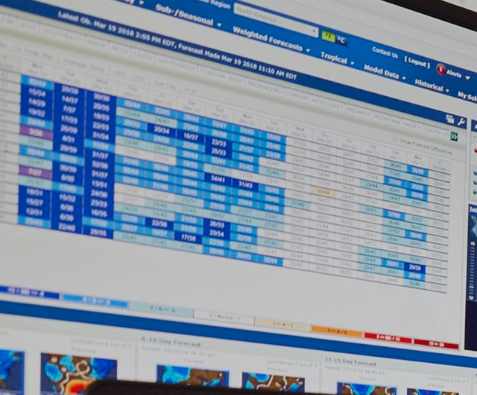The Relationship Between Weather and Energy Prices

Originally posted on NRG Insights
When it comes to natural gas and electricity prices, weather plays a crucial role. Heat waves are often cited as having pricing implications— but it’s not just hot weather. More often, it is the severe cold or massive storms that impact supply and demand, which can potentially lead to fluctuations in energy prices.
How NRG Energy PreparesAt NRG, we stay ahead of severe weather by working with our meteorological team. Our experts look to weather balloons as a means to study atmospheric changes. In their forecasts, they analyze steering patterns at the jet stream level, as well as pressure systems located in the mid-atmosphere. The most accurate forecasts come from the meteorologists’ use of “ensemble-based models”—a method that employs multiple weather models and calculates the variance to come up with a mean or average temperature. This data, coupled with other factors, enables the team to more accurately predict demand and determine future energy prices.
Solutions for long-term energy strategyFortunately, businesses can avoid price fluctuations by working with an experienced, full-service retail energy provider, one that understands weather and market dynamics and uses that knowledge to help guide customers with their electricity plan.
We at NRG have the insight to help businesses capitalize during extreme weather conditions that impact grid demand. For example, our demand response programs—solutions designed around potential financial incentives for businesses that reduce or shift energy when demand peaks arise—offer organizations an opportunity to build their energy plan around resiliency. When the grid is experiencing a crisis or predicted supply shortage, we work with customers to communicate demand and alert customers as to how to scale energy usage.
But we’re also taking energy management a step further, through our exclusive asset-backed demand response. Participants receive backup generation from on-site generators installed, operated, and maintained at no or little cost to the business. This solution provides customers with a power resource that can supplement grid demand and offers an added element of reliability, while NRG handles all the maintenance and compliance work.
How is NRG able to offer this value? Again, it’s because of our forecasting and marketing expertise, which we use to leverage the backup generators to their fullest when the asset is not needed by the customer.
These are just a few ways our years of experience and data-driven mindset can help your business weather the weather—and its influence on energy pricing.

